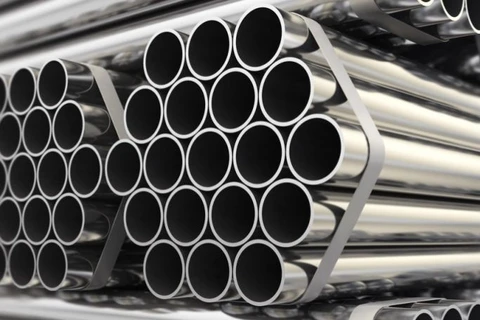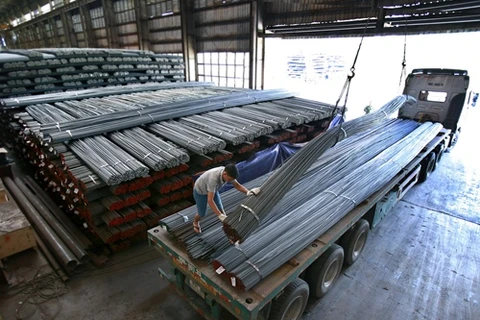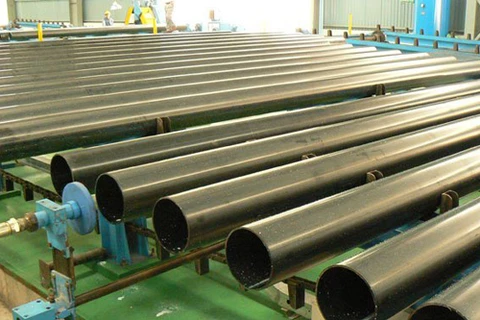HCM City (VNA) - The steel industry is likely to enjoy 10-12 percent growth next year, said the Vietnam Steel Association (VSA) at a workshop in HCM City last week.
According to Chu Duc Khai, VSA General Secretary, steel consumption depends on the country’s gross domestic product (GDP) growth.
With expected GDP growth of 6.2 percent this year, and the operation of 10 steel projects in 2017, the sector’s growth is expected to further expand, Khai said.
However, he warned of challenges ahead as cheap steel from China would continue to flood the domestic market.
Vietnam also has to meet strict technical standards when it exports steel.
To cope with difficulties, the country will have to apply trade protection measures and technical barriers to restrict steel imports, he noted.
The VSA has filed petitions to the Government demanding anti-dumping measures be imposed on several steel imports.
The association has also sent a document to the Ministry of Industry and Trade (MoIT) to propose some changes in the draft zoning plan for Vietnam’s steel sector until 2025 with a vision towards 2035.
Accordingly, the association suggested the ministry propose the Government a stop in managing the steel industry by planning. Regarding the current practices, a steel project cannot be approved if it is not named in the master plan for the industry.
VSA Vice Chairman Nguyen Van Sua, said that economic sectors including steel should not be managed by planning.
Instead, the zoning plan for Vietnam’s steel sector should be used as a reference for businesses before deciding their investment, he said.
According to the Law on Planning which has been discussed in the National Assembly since September, 21 sectors would need planning at national level as they relate maritime resources and large scale infrastructure. But most opinions against the planning for the steel industry, yet the ministry has still drafted planning and gathered opinions.
Besides, the issuance of investment certificates should be done with the agreements of relevant ministries, not just the MoIT.
The association noted that the MoIT’s draft has shortcomings as it did not provide development targets for hot rolled and high quality steel, as Vietnam has imported 100 percent of these products.
The ministry still put the expansion of the Thai Nguyen Iron and Steel Corporation phase 2 in the draft zoning plan despite losses.
The VSA proposed that the MoIT resolve issues with the projects which have not started their construction or are unfeasible between 2017 and 2025.
At a recent Q&A session of the National Assembly, Minister of Industry and Trade Tran Tuan Anh said the country would not implement industrial projects that harm the environment and that no groups could influence the project approval process.
The ministry wants sustainable growth for industrial sectors and to use natural resources efficiently.
The minister reiterated that Vietnam needs more steel projects, because by 2020 the country will have to spend 15 billion USD a year on imported steel.
VSA figures revealed that last year Vietnam imported more than 14 million tonnes of steel. The figure for this year is estimated at about 17.5 million tonnes.-VNA
VNA

























